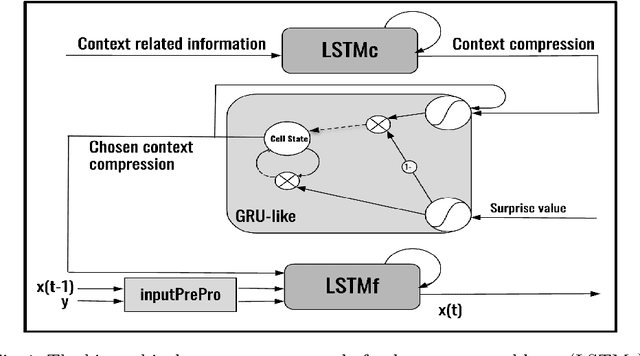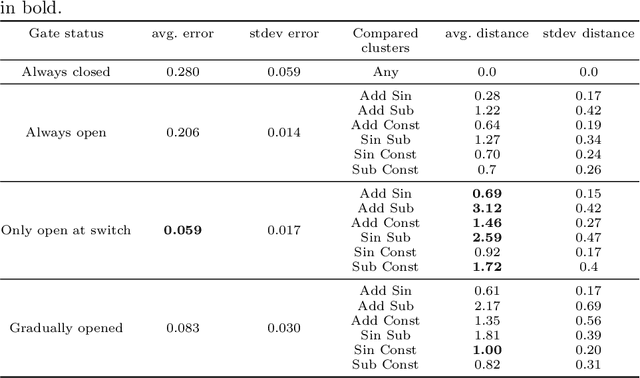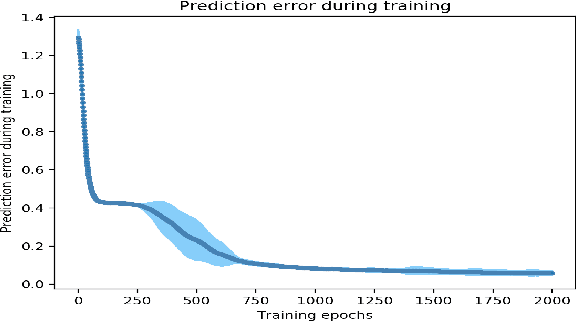Fostering Event Compression using Gated Surprise
Paper and Code
May 12, 2020



Our brain receives a dynamically changing stream of sensorimotor data. Yet, we perceive a rather organized world, which we segment into and perceive as events. Computational theories of cognitive science on event-predictive cognition suggest that our brain forms generative, event-predictive models by segmenting sensorimotor data into suitable chunks of contextual experiences. Here, we introduce a hierarchical, surprise-gated recurrent neural network architecture, which models this process and develops compact compressions of distinct event-like contexts. The architecture contains a contextual LSTM layer, which develops generative compressions of ongoing and subsequent contexts. These compressions are passed into a GRU-like layer, which uses surprise signals to update its recurrent latent state. The latent state is passed forward into another LSTM layer, which processes actual dynamic sensory flow in the light of the provided latent, contextual compression signals. Our model shows to develop distinct event compressions and achieves the best performance on multiple event processing tasks. The architecture may be very useful for the further development of resource-efficient learning, hierarchical model-based reinforcement learning, as well as the development of artificial event-predictive cognition and intelligence.
 Add to Chrome
Add to Chrome Add to Firefox
Add to Firefox Add to Edge
Add to Edge